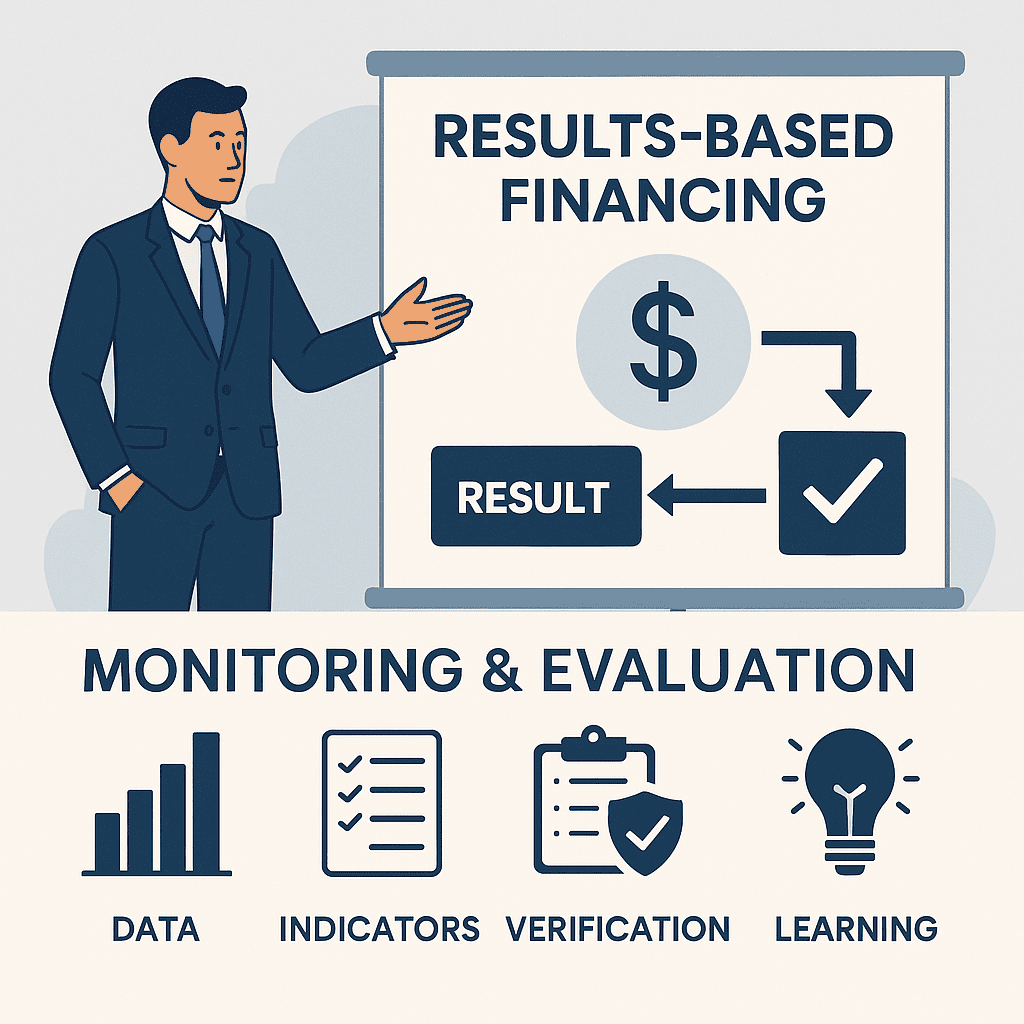At Comprehensive Impact and Learning Solutions (CILS Consulting), we understand that maximizing development impact requires robust Monitoring, Evaluation, and Learning. CILS designs robust M&E systems that ensure Results-Based Financing initiatives deliver tangible impact while empowering local value chain actors.
Understanding Results-Based Financing (RBF) Projects.
Results-Based Financing (RBF) is an innovative approach that fundamentally shifts the funding paradigm by tying financial incentives directly to the achievement of pre-agreed, verifiable results rather than simply reimbursing inputs. Unlike traditional input-based funding focusing solely on the budgets, RBF incentivizes efficiency, accountability, and ultimately, greater impact. Imagine a health project where payments are released only when a certain number of children are fully vaccinated, rather than simply for purchasing vaccines. This focus on verifiable outcomes drives performance.
Importance of Monitoring and Evaluation in RBF projects
Monitoring evaluation and learning is paramount in this context because it provides objective proof of results before disbursements, manages financial and programmatic risk for funders, drives adaptive learning by identifying what works, builds the capacity of local actors to manage for results, and ensures accountability to all stakeholders.
Our M&E advisory services begin with developing a robust Theory of Change (ToC). Clearly articulating the causal pathways, from activities and outputs to desired outcomes and impacts, explicitly mapping how change is expected to occur within the project context. Identifying key assumptions and risks that could affect implementation is crucial here.
The ToC clarifies the pathway should follow and directly informs the development of clear, measurable indicators. In RBF, these are often Disbursement-Linked Indicators (DLIs) – specific, measurable, achievable, relevant, and time-bound metrics upon which payments hinge.
Performance Measurement & Milestone Verification for RBFs
Central to any M&E framework are well-defined indicators. In RBF, these are often Disbursement-Linked Indicators (DLIs) – specific, measurable, achievable, relevant, and time-bound metrics upon which payments hinge. Crucially, these indicators must be translated into specific, verifiable milestones. These are the concrete achievements that trigger RBF payments. For example, a milestone might be “SME X installs and operates new hygiene-compliant processing equipment, verified by [date], leading to a 20% reduction in post-harvest loss,” rather than a vague goal of “improved processing.”
All these elements are integrated into a comprehensive MEL (Monitoring, Evaluation, and Learning) Plan, acting as the project’s M&E roadmap. This plan details data collection methods for indicators and milestones, defines roles and responsibilities, sets timelines, outlines rigorous verification methodology, and crucially, specifies how learning will be captured and used for adaptive management.
Central to RBF integrity is the verification methodology. This defines the impartial process for confirming milestone achievement, often requiring third-party monitoring for objectivity. Methods include document review, physical inspection, stakeholder interviews, and robust data verification processes, including formal DQA (Data Quality Assessment) to ensure information accuracy and reliability. Verifying an “increased sales volume” milestone, for instance, involves cross-checking sales records, invoices, and potentially buyer testimonials.
Finally, integrating SME capacity building within the M&E framework ensures that local actors gain the skills needed to report on project milestones and associated indicators. CILS Consulting provides comprehensive M&E advisory services, training short courses, and verification support for results-based financing initiatives across diverse development contexts.
See our range of services: CILS Consulting: MEAL Services


